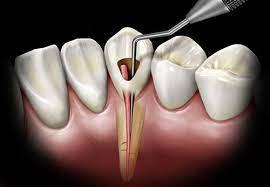Commandité
How to Care for Your Tooth After Root Canal Treatment?

If you're wondering how to care for your tooth after root canal treatment, you're not alone. While Root Canal Treatment in Dubai removes infection and saves your natural tooth, proper aftercare is essential for healing and long-term success. The treated tooth may feel sensitive or tender initially, but with the right steps, you can ensure a full recovery and avoid future complications. Let’s explore what you should do—and avoid—after your root canal.
Manage Pain and Sensitivity the Right Way:
It’s completely normal to feel some soreness or pressure in the days following your root canal. This discomfort is usually mild and can be managed with over-the-counter medications, but it’s important to follow your dentist’s instructions precisely.
To handle post-procedure discomfort:
-
Take prescribed or recommended pain relievers, such as ibuprofen or acetaminophen
-
Avoid chewing on the treated tooth until it’s fully restored with a crown or permanent filling
-
Use a cold compress on your cheek if there is minor swelling or throbbing
-
Rest your jaw and avoid talking or chewing excessively for the first 24 hours
If the pain worsens after a few days or you experience severe symptoms, contact your dentist right away.
Be Mindful of Your Eating Habits:
Eating the wrong foods after a root canal can disrupt healing or damage your temporary filling. It's best to stick with soft, non-irritating foods for the first few days while your tooth adjusts and heals.
Safe eating practices include:
-
Choose soft foods like yogurt, applesauce, mashed potatoes, and soups
-
Avoid hot foods and drinks immediately after the procedure
-
Stay away from crunchy or sticky foods, such as nuts, candy, or gum
-
Chew on the opposite side of your mouth to avoid pressure on the treated tooth
Once your permanent crown or filling is in place, you can gradually return to your normal diet with your dentist’s approval.
Maintain Excellent Oral Hygiene:
After your root canal, maintaining a high level of oral hygiene is more important than ever. Although the nerve is removed, the tooth and surrounding gum still need care to prevent future infections or decay.
Smart hygiene habits include:
-
Brush your teeth twice daily using a soft-bristled toothbrush and fluoride toothpaste
-
Floss daily to remove debris between teeth and near the treated area
-
Avoid vigorous rinsing for the first 24 hours, but afterward, gentle saltwater rinses can reduce inflammation
-
Use an antibacterial mouthwash if recommended by your dentist
Keeping your mouth clean helps your treated tooth heal faster and remain healthy for years to come.
Protect the Tooth Until It’s Fully Restored:
Most root canals require a second appointment to place a permanent filling or crown. Until then, your tooth is vulnerable to cracks, leaks, or reinfection if not handled carefully.
To protect your tooth:
-
Avoid biting down on hard objects, like ice or pens
-
Refrain from using the tooth to tear or cut food
-
Don’t delay your crown appointment, as the tooth is weaker without full coverage
-
Use a mouthguard if you grind your teeth at night or play contact sports
Once a permanent restoration is placed, your tooth will be stronger and function more like a natural tooth.
Follow-Up Visits and Monitoring:
After a Root Canal Treatment , follow-up appointments are crucial to ensure the tooth is healing properly and the restoration is secure. Your dentist will check for signs of infection, verify your bite alignment, and evaluate the crown or filling.
Things to keep in mind:
-
Schedule and attend all follow-up appointments
-
Let your dentist know if you feel pain, pressure, or swelling weeks after treatment
-
Take X-rays if requested, to check for healing and any lingering infection
-
Keep track of how your bite feels—a poorly aligned crown can cause discomfort or jaw issues
Staying in communication with your dental provider ensures any potential problems are addressed early.
Long-Term Care for a Treated Tooth:
Now that you know how to care for your tooth after root canal treatment, it’s important to keep those good habits going long term. Root canal-treated teeth can last a lifetime when properly maintained.
For long-term success:
-
Visit your dentist twice a year for professional cleanings and checkups
-
Avoid habits that stress your teeth, like nail-biting or opening packages with your mouth
-
Continue brushing and flossing daily, especially around the crown
-
Watch for signs of wear or discomfort, and report them promptly
By protecting your root canal-treated tooth with consistent care, you ensure both your comfort and your smile remain healthy well into the future.
Catégories
Lire la suite
Having powerful, delicious locks is really a general symbol of elegance and confidence. Unfortuitously, strain, pollution, bad diet plans, and poor lifestyles often take a cost on our hair, which makes it weak, slim, or susceptible to slipping out. While there are countless solutions and therapies in the marketplace, one normal option has stood the check of time—essential hair growth oil....

You know that itchy feeling when you're all alone in Whitefield? The one that has you eyeing every attractive passerby and desperately swiping dating apps? Well, put down your phone, you thirsty devil. Bangalore's naughtiest open secret is ready to scratch that itch. We're talking about escort services - where money talks and discretion walks. Whether you're a lonely tech-bro or a bored...



